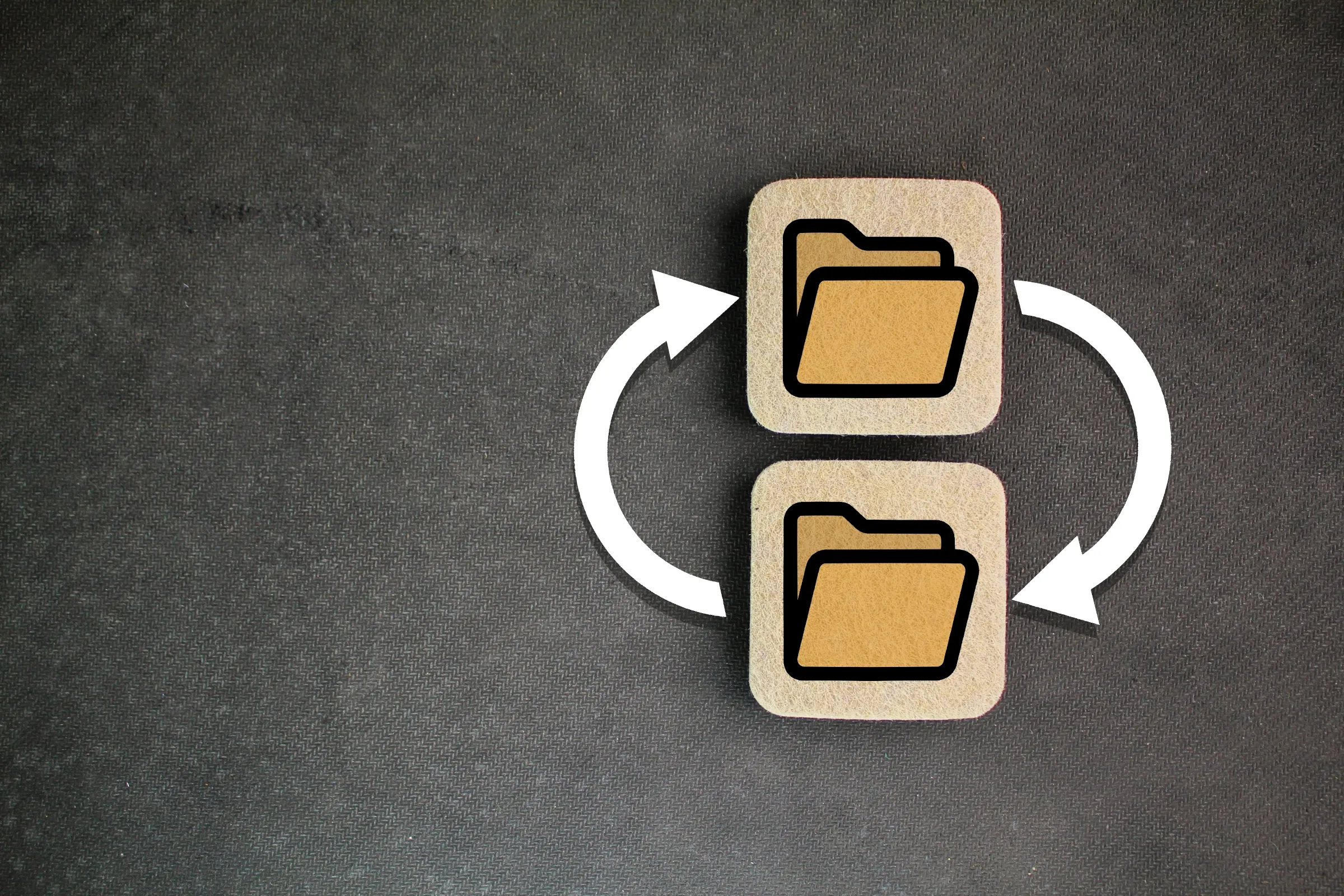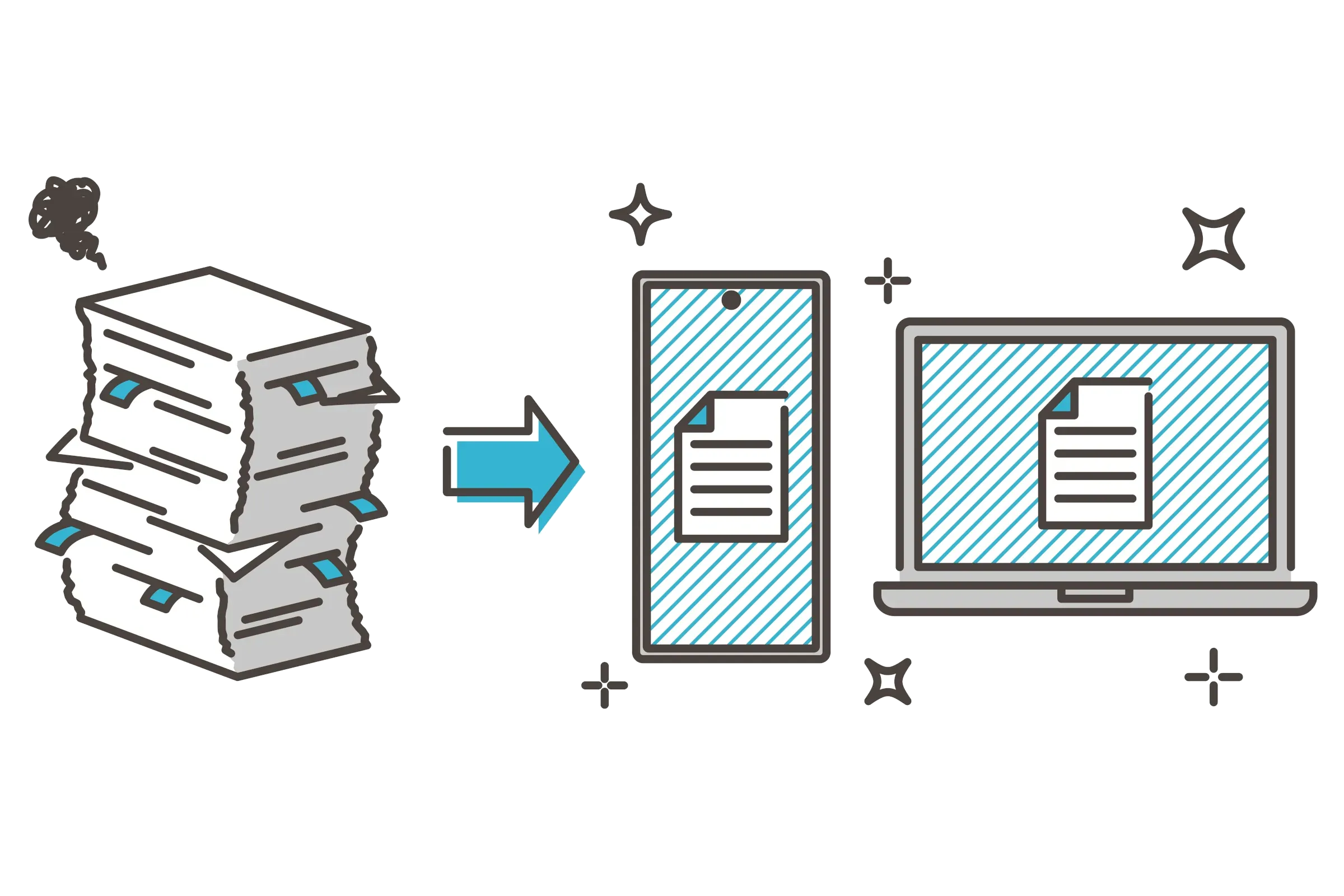Managing a cemetery is no small task. The way you record and maintain information directly affects staff efficiency and family satisfaction. Clear, reliable records help your team stay organized and allow families to receive timely, accurate answers. Before we explore how technology solves these challenges, it’s important to recognize the two most common problems cemeteries face when it comes to recordkeeping. Many organizations fall into one of two categories (or sometimes both!), each of which creates inefficiencies and unnecessary repetition.
The Challenge of Repetition in Cemetery Operations
Paper-Based Systems
Information is often written down in multiple ledgers, binders, and card catalogs. Staff end up copying the same details across different forms, and then spend time searching through filing cabinets whenever families or auditors request information. This creates a constant cycle of repetition and makes it difficult to ensure accuracy. On top of that, paper records are vulnerable to loss, fire, flooding, or simple deterioration over time, with no built‑in backup or recovery process. A modern, well-built solution provides inherent backups and security, protecting your cemetery’s history for generations.
Legacy Computer Systems
Many cemeteries also rely on older cemetery software or do-it-yourself tools built through platforms like Excel or Access. These platforms were built to supplement paper files rather than replace them. Staff often complete contracts, log burials, or track ownership by hand, and only later re-enter parts of that information into a spreadsheet or database. This duplication wastes valuable time and increases the risk of mistakes, inconsistencies, and misplaced data.
Both approaches create bottlenecks that slow operations, scatter information, and frustrate staff and families alike. These challenges highlight the need for a modern system that can handle the recordkeeping automatically, keeping everything accurate and connected as you work. This is where webCemeteries changes the picture.
The webCemeteries Approach: Recordkeeping That Happens as You Work
webCemeteries eliminates repetitive manual steps by making the software your system of record, not paper.
When you:
- Write a contract → the system automatically updates ownership records, maps, and accounting.
- Schedule a burial → the schedule, maps, and work orders update instantly, with reporting at any manager’s fingertips (no paper being blown across your property!).
- Collect payments → receipts log against the contract, and families can choose automated invoicing or autopay increasing your collection rate and reducing calls for non-payment or missed payments
This means you no longer repeat the same information in multiple places. Every action you take in the system updates records, maps, and documents in real time.
Benefits of Reducing Manual Recordkeeping
Choosing a digital-first approach to recordkeeping does more than cut down on busywork. It reshapes how your cemetery operates and how families experience your service. The benefits are not isolated items on a list but connected improvements that reinforce and strengthen one another.
A digital system saves time and streamlines operations because staff no longer need to re-enter the same information or dig through filing cabinets. This efficiency frees them to focus on families. At the same time, it improves accuracy and reduces costly errors by updating maps, contracts, and reports instantly and consistently. Cemeteries that embrace these efficiencies also deliver a more seamless service to families, where contracts can be signed immediately, payments handled online, and answers given on the spot without delays.

Modern recordkeeping also preserves and protects cemetery history. Unlike paper that can fade, burn, or be lost to flooding, digital records remain secure, centralized, and backed up, safeguarding your legacy for generations. Finally, because the system is accessible anywhere through the cloud, your team can provide consistent service whether they are in the office, out on the grounds, or working remotely. These advantages build on each other, creating a stronger, more reliable foundation for serving your community.
Moving Beyond Repetition: A Smarter Future for Cemeteries
Cemeteries that continue to rely on paper files or outdated systems remain stuck in a cycle of repetitive tasks and constant risk of errors or data loss. In practical terms, staff end up spending valuable time on work that could be better directed toward families, or they are busy correcting mistakes that never should have happened in the first place. Both situations take away from the quality of the family experience. By adopting a digital-first solution like webCemeteries Cemetery Management, you create a single source of truth that works as you work. Contracts, burials, payments, and mapping all stay synchronized automatically, freeing your team from manual repetition and helping families receive the professional, timely service they deserve.
Frequently Asked Questions About Cemetery Recordkeeping
Related Articles
Articles related to the one you just read!
What are cemeterians saying about webCemeteries?
This [website] project was quite an odyssey with plenty of twists and turns. The webCemeteries website design team weathered the storm. I think it’s more than fair to say that without their efforts, we would not have gotten this over the finish line…and with such an excellent outcome.
Mark J. DePalma
Forest Lawn Buffalo



